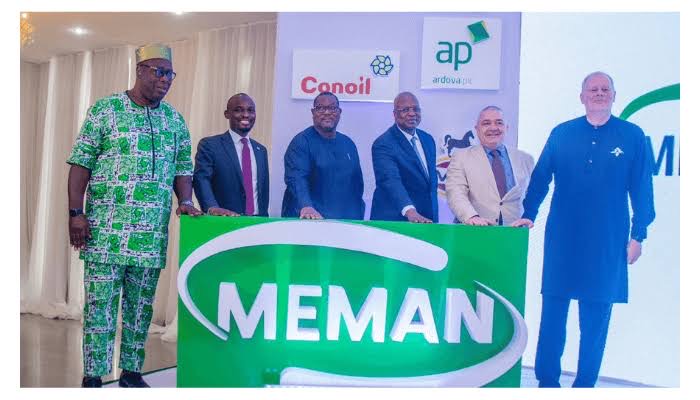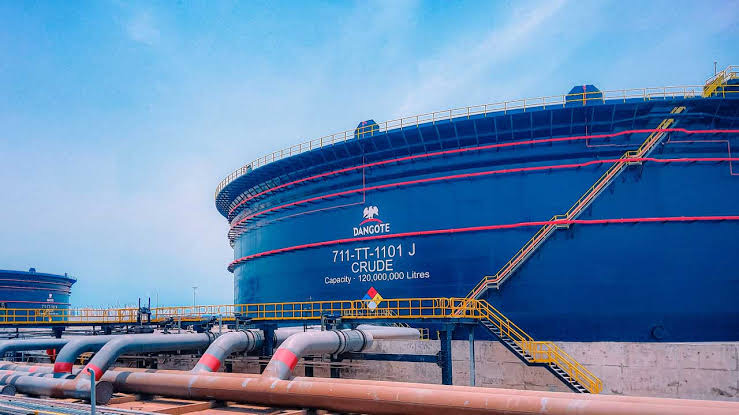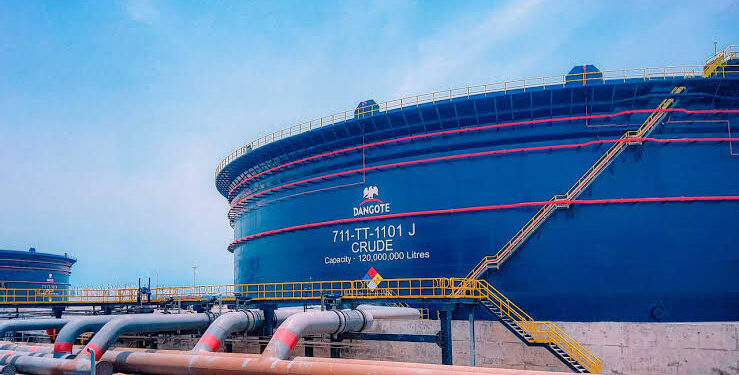Oil marketers are waiting for the price release of premium motor spirit (commonly known as petrol) produced at the Dangote Oil Refinery as the refinery begins production trials of PMS ahead of its September launch.
According to Journalist report, Dangote refinery is currently testing petrol production, with full-scale operations expected in mid-September.
The paper cited a statement from oil industry monitor IIR Energy as saying the deadline could be extended further.
According to the report, IIR said in a note to clients that “it is possible that there could be further extensions”.
IIR Energy provides real-time supply-side global market intelligence to the commodity trading community. Dangote Refinery spokesman Anthony Chiejina has yet to respond to our correspondent’s request for comment on the matter on Thursday.
Meanwhile, members of the Association of Major Energy Marketers of Nigeria and the Association of Independent Petroleum Marketers of Nigeria said they are still waiting for prices for products from the $20 billion plant.
On August 20, Journalists reported that the Federal Government committee set up to ensure the implementation of the naira crude oil sales to local refineries had reached an agreement with Dangote Oil Refinery to introduce gasoline in September this year.

The report also stated that the Federal Government had announced that crude oil sales to Dangote Refinery and other local refineries would commence on October 1, 2024.
The Minister of Finance and Coordinating Minister for Economic Affairs, Wale Edun, disclosed this during a meeting with the implementation committee in Abuja. Also reported at the meeting was the Executive Director of the Federal Inland Revenue Service, Dr. Dominic Zack Adedeji, and chairman of the technical sub-committee, who said, “The first PMS delivery from Dangote is expected next month under existing agreements.”
IPMAN National Operations Manager, Mustapha Zarma, when asked if the price of PMS from the refinery has been disclosed to traders, said oil traders are still waiting for the price of a litre of petrol from the refinery.
“There is no cost yet. When the product is available, they will release the cost. But they are test-running the plants now,” Zarma explained.
He, however, noted that if the price were to match the actual market price, oil traders may not be able to buy petrol from the Dangote refinery, stressing that currently, the pump price of PMS is lower than the actual market price.
“Even if there is a price from the refinery, you cannot buy their product. At the prevailing retail price, you cannot buy their product. You can only buy it if they (Dangote) go into agreement with the government or unless the policy on petrol pricing changes,” Zarma explained.

The IPMAN official reiterated a recent revelation by the Nigerian National Petroleum Company that the pump price of petrol in Nigeria is far below the purchase cost of the commodity.
Zalma said Dangote would not sell the product below cost unless the government intervenes. The government, through the NNPC, is the sole importer of petrol into Nigeria and is responsible for subsidizing the cost of the product.
Dangote Group President Alhaji Aliko Dangote announced on May 18, 2024, that the refinery would start producing gasoline in June, adding that Nigeria would not have to reimport the product.
He said in June that due to some delays, the refinery would start supplying gasoline in July.
The July target was then postponed to August, and on August 20, the government announced that the plant would be released from PMS in September.
A MEMAN official said the refinery was taking its time to ensure that the product meets the country’s required specifications.
The official, who spoke to our correspondent confidentially as he was not authorized to speak on the matter, also explained what the trial run of PMS at the plant means.
He said, “Under normal circumstances, when you make your product, you are not making it in a bucket, you are making it to fill massive tanks. Because when you start selling, you are going to be selling in ships. So, you make several millions of litres and you keep blending and testing until it reaches the right specifications.
“It is like when you are cooking a soup, when you put salt, you taste it, when you put seasoning you taste and that is how you continue until you reach the right taste. It is the same thing when they continue to blend and blend until it reaches the required specification.
“You blend, you mix it and you test if it has the right specs; if it’s not, you mix some more and blend it; you adjust your refinery, blend it, and test it. You keep blending and testing until it reaches the right specification. When it reaches the right specification, then you push up.”
































